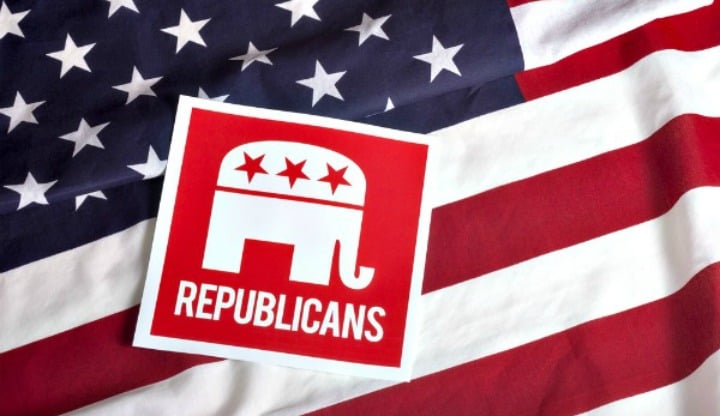What Are Trump’s Ultimate Plans for Obamacare?
President Donald Trump vowed to repeal Obamacare while on the campaign trail, but since winning the presidential election against Democratic nominee Hillary Clinton the law has remained bascially intact. So will Obamacare be a factor in the 2020 race?
It doesn’t look like it.
Trump recently dropped plans for a Republican replacement for the Affordable Care Act after Majorilty Leader Mitch McConnell of Kentucky privately warned told him that his chamber would not revisit the issue before the 2020 elections, according to The New York Times.
It could just be a waiting game for the president.
“So if we get back the House [in 2020] and on the assumption we keep the Senate and we keep the presidency — which I hope are two good assumptions — we’re going to have a phenomenal health care,” Trump said.
Mr. Trump said a few days after taking office that he favored keeping the provision in Obamacare that doesn’t let insurance companies deny coverage to patients because of pre-existing condtions. He also said he likes the section of Obamacare that allows parents to keep their adult children on their insurance policies for additional years.
“I like those very much,” said Mr. Trump, according to The Wall Street Journal.
President Obama’s signature health care law in 2010 came at a time when nearly 50 million Americans were uninsured. It was billed as a solution to make insurance more affordable and accessible, particularly for low-income Americans who struggle to pay for coverage.
Studies show Obamacare has expanded coverage to more than 20 million Americans who previously did not have insurance. Since the Patient Protection and Affordable Care Act was signed in March 2010, the uninsured rate has plummeted to an all-time low of 8.6 percent, according to the Centers for Disease Control and Prevention.
But critics, among them Trump, argue the cost of health insurance is rising because of what they say are unsustainable parts of the reforms.

Where Trump stands on health care
On his first campaign trail Trump said repeatedly that he plans to repeal Obamacare and replace it with “something much better.”
But Trump could not and cannot eliminate Obamacare on his own. He would need to rally support in Congress, which so far he has failed to do even with the GOP controlled both chambers.
However, his plans have, and could continue, to evolve.
QUIZ: How Well Do You Know Your Health Savings Account?
Dismantling Obamacare entirely is expected to double the number of uninsured Americans. According to the nonpartisan Committee for a Responsible Federal Budget, 22 million people would lose their insurance plans because of the repeal, while only 1 million of those people would regain coverage under the replacement policies.
This would cost the economy about $550 billion over the next decade, the study finds.
But the Center for Health and Economy paints a more optimistic picture. The group released a study that said repealing Obamacare would decrease the federal deficit by $583 billion.
Trump’s plan from the previous campaign trail to replace Obamacare involves a patchwork of proposals aimed at relinquishing the federal government’s grip on health care and creating a free-market system.
It’s starts with an overhaul of Medicaid, the government-funded health care program for low-income families. Any overhaul would require approval from Congress.

Trump’s original plan would shift the responsibility for Medicaid to the states through what’s known as a block-grant system. Republicans say this will give the states more control over the program, and encourage them to “eliminate fraud, waste and abuse,” but critics say it could lead to massive funding cuts from cash-strapped states that would increase the number of low-income Americans without insurance.
The Committee for a Responsible Federal Budget estimated Trump’s Medicaid plan could “generate significant savings.” If the federal government were to freeze the block grants at the current levels, it would save $845 billion over the next decade.
But warnings sign can be gleaned from House Budget Chairman Tom Price’s 2015 proposal to turn Medicaid into a block-grant program, which according to the Center on Budget and Policy Priorities, would have led to $1.8 trillion in funding cut over the next decade and left “tens of millions of Americans” without health insurance.
CHECK OUT: 6 Common Health Insurance Myths
Trump also has said he would seek to reduce the barriers for insurance companies to sell coverage across state lines.
Currently, federal law prohibits Americans from buying health insurance from out-of-state companies.
Trump has said he would ask Congress to overturn this policy and open up a national health insurance market that increases competition and choice for consumers. This, he reasons, would put downward pressure on prices.
The Center for Health and Economy estimates that allowing insurers to sell across state lines would decrease premiums by as much as 37 percent by 2026.
In keeping with the spirit of a free market, Trump has said he also would like to allow foreign pharmaceutical companies to import drugs that have been approved by the Food and Drug Administration (FDA). Supporters say this would lower prescription drug prices, but others have expressed safety concerns.
So far this campaign season, though, repealing Obamacare has not been in the spotlight.
Is the individual mandate in jeopardy?
Trump’s original plan would replace the “individual mandate” with tax credits. Americans would be allowed to deduct insurance premiums from their taxable income, which is the current practice for employees who receive insurance through their companies.
But participation could take a hit if Trump removes the individual mandate, critics say, causing insurance premiums to climb.
According to the Committee for a Responsible Federal Budget, the tax credits would cost the government $100 billion in lost revenue, and critics say it would only benefit wealthy people who make enough money to claim deductions.
Trump also has said he would exempt health savings accounts from taxes, and allow the benefits to be passed onto family members.
Such a tax overhaul would require congressional approval.
Doctors and hospitals would be required to offer more transparent prices, so patients can shop for the most affordable healthcare services, under Trump’s plan.
The Affordable Care Act prohibits illegal immigrants from buying coverage through the government-run exchanges, but Trump has claimed he can save another $11 billion each year in health care costs by more rigorous enforcing existing immigration laws. This would fall within Trump’s executive authority, meaning he would not need the permission of Congress.
“If we were to simply enforce the current immigration laws and restrict the unbridled granting of visas to this country, we could relieve health care cost pressures on state and local governments,” Trump wrote.
Editor’s note: This is an updated version of an article first published in November 2016.
